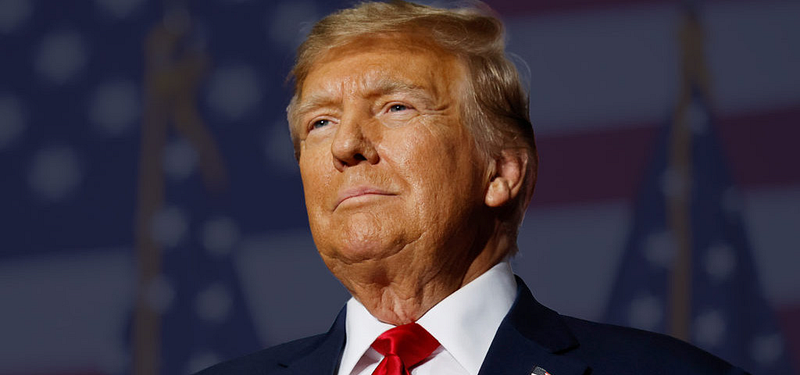
Donald Trump is headed to the Oval Office, and, with him, comes a new economic regime. Specifically, Trump has announced that imposing massive tariffs on imports and tax cuts to America’s rich are at the top of his policy agenda. With the economy only just getting back on its feet following the economic crisis caused by the pandemic, Trump’s policies threaten to upend all of the Biden administration’s progress on inflation and unemployment. Hamilton’s Economics professors predict how Trump’s presidency will impact the economy.
Fears of inflation that people expect from Trump’s tariffs have spurred many to up interest rates in an effort to preserve the value of loans that they expect will be paid back to them in inflated dollars. Professor of Economics Ann Owen commented on the impact Trump’s victory has already had on the economy: “What we’ve seen in financial markets immediately following the election, is the stock market rallied and interest rates went up. People are anticipating pro-business policy and especially policy that is going to benefit specific industries, like crypto currency, banks and tech stocks. But, Trump’s policies are inflationary, so I think that’s why we saw an increase in interest rates.”
Considering the way in which Harris “marketed” her economic agenda to the American public, professor of Economics Cody Couture commented, “If you can promise people jobs, if you can promise people lower prices, if you can promise them security, they really don’t care how it happens. I think Trump’s economic messaging was simpler. Was it better? Probably, in practice, not so optimal, but it was much more bite size.” Couture also raised a more broad question about political messaging: “Should you be campaigning on what you plan to do or should you be campaigning on what wins you votes?”
Economics professor Jeffrey Cross also weighed in on the questions regarding Harris’ messaging: “I’ve thought about it a lot. What could they have done differently? The problem is, if you lean into the Biden record, things are good now, but inflation was bad…with inflation, you get an increase in prices, those prices are still high, so people still feel it. So I’m not sure if that would have been a winning strategy.” But, Cross noted, that Harris’ campaign failed to effectively sell “the current trajectory, across the board,” without any nod to all of the work the Biden-Harris administration did to incentivize investment and bolster infrastructure: “it was totally lost. It was almost not a talking point.” Considering Trump’s messaging, Cross argued,“I don’t think he even sold his vision, to be honest. I think what he did was he created reasons for why these bad things are happening to you, and sold those things.” Cross also raised a question about the extent to which the MAGA movement has defined the political and campaign landscape, “What does this look like four years from now? Could Democrats run on the same thing and take another Republican? Maybe.”
Cross also touched on the public’s misconceptions regarding the mechanics of the economy: “There is also this disconnect which is how people view an impact on nominal wages, which is fundamentally different to how people view inflation. So, nominal wages you view as you earning, and inflation happens to you.” Nominal wages are the amount of money employers pay workers before adjusting for inflation– a rise in nominal wages does not imply an increase in overall earnings. Psychologically, however, people still view a rise in nominal wages as an increase in earnings. Cross notes that workers view a rise in prices as “‘Oh you took money that should be in my pocket right now,’” Cross explained. Owen also explained that the public’s lack of knowledge on economic dynamics play a role in their reception of a candidate’s economic promises. “I do think there’s a lot of research that shows that people don’t fundamentally understand what causes inflation. They don’t like it. That’s really clear, but they don’t fundamentally understand what causes it. People are saying they want prices to come down, well you don’t want that. That happened in the Great Depression. We don’t want prices to come down, we want the rate of increase to stabilize. That’s a pretty subtle point to make,” said Owen. Trump’s win poses questions about how candidates should advertise their economic plans.
Reflecting on the threat Trump’s economic policies pose to America, Professor Christophre Georges explained, “I worry about the social fabric as much as I do, oh do we get 2% growth or 4% growth this year. I think what we’re seeing is the growth of a very high net-worth elite that would just as soon check itself out of society and not be part of that social fabric.”
Ringing in a new economic order that promises prosperity to all Americans, Trump and his economic policies will soon be put to the test. Hamilton’s economists do not see prosperity in the majority of Americans’ future in a Trump economy.

















